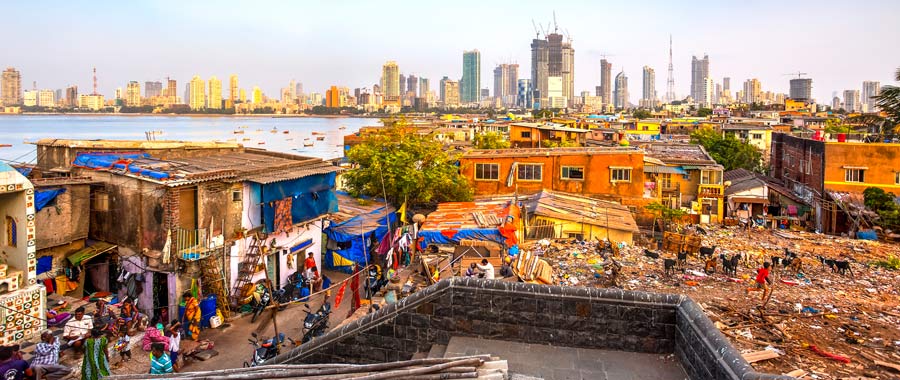The Bahá’í teachings encompass a profound commitment to social justice, particularly in the realm of abolishing the extremes of wealth and poverty. This principle emerges from a holistic understanding of human dignity and the interdependence of all people, which is central to the Bahá’í faith. The implications of this principle extend beyond mere economic discourse; they challenge societal norms, encourage active participation in community welfare, and promote a vision of an equitable global society.
To delve into this transformative principle, it is essential to consider its foundational assertions, historical context, and the societal changes it advocates. The teachings articulate that economic disparity is a critical hindrance to the realization of divine justice, emphasizing that extreme wealth and extreme poverty are detrimental to both the individual and the collective. This duality not only affects material conditions but also influences the moral and spiritual fabric of society at large.
At its core, the principle of abolishing extremes of wealth and poverty is predicated on the recognition of the oneness of humanity. Bahá’u’lláh, the founder of the Bahá’í faith, posits that every individual possesses an intrinsic value that transcends economic status. In this light, wealth is viewed not as a tool for personal aggrandizement but as a means of service to humankind. This paradigm shift encourages individuals to reassess their relationship with material possessions and their responsibilities toward one another.
Historically, the teachings advocate for a systematic restructuring of economic frameworks to ensure that wealth is equitably distributed. This call to action is not simply a theoretical discourse; it encompasses practical measures aimed at diminishing economic disparities. For instance, the promotion of a global economy that prioritizes the common good over individual gain fosters an environment where wealth acts as a catalyst for collective empowerment. Such economic systems would ideally facilitate access to education, healthcare, and other fundamental rights for all, thereby obliterating the barriers that wealth and poverty create.
The road to abolishing extremes of wealth and poverty is fraught with complexities. One must consider the institutional frameworks that perpetuate inequality. The Bahá’í teachings encourage followers to engage with and transform these systems through advocacy and reform. This engagement not only includes policy changes at governmental levels but also promotes grassroots initiatives that empower individuals and communities. Through collective action and a unified vision, it is possible to foster environments that support equitable resource distribution and social upliftment.
The Bahá’í faith also stresses the importance of fostering a sense of community responsibility. The teachings advocate for a shift in values from self-interest to altruism—that is, cultivating an ethic of giving and service. This foundational shift possesses the power to reshape societal attitudes towards wealth accumulation. When individuals begin to perceive abundance as an opportunity for charitable engagement rather than a marker of personal success, a collective consciousness arises that prioritizes societal welfare.
Moreover, the application of this principle requires a nuanced approach to the understanding of wealth itself. In Bahá’í thought, wealth is inherently neutral; it is the intention and manner of its use that designates it as beneficial or detrimental. Educating individuals on moral stewardship of wealth is pivotal. The teachings encourage a perspective where individuals can cultivate wealth not only for their benefit but primarily as a means to contribute positively to society.
One prominent initiative birthed from these principles is the establishment of local and regional economic development programs that embrace inclusive practices. Such programs are often founded on principles of cooperation, creativity, and community involvement, reflecting the Bahá’í stance on the interconnectedness of humanity. By pooling resources and fostering collaborative projects, communities can tackle local issues of poverty while simultaneously addressing broader economic challenges.
The discourse surrounding wealth equality naturally also encompasses the significance of education. The Bahá’í teachings emphasize universal education as a fundamental precursor to achieving economic equity. Access to education empowers individuals, equipping them with the skills necessary to rise above poverty. An educated populace contributes not only to the economy but also to the development of a more informed and compassionate society. Investment in education serves as a catalyst for change, aligning closely with the Bahá’í commitment to nurturing talent and potential across all demographics.
In attempting to abolish the extremes of wealth and poverty, it is imperative to acknowledge the role of spirituality. The Bahá’í teachings intertwine material and spiritual realms, positing that true wealth is realized through spiritual fulfillment. To seek material wealth without spiritual advancement is to embark on a futile journey, one that ultimately leads to disillusionment. Thus, fostering a connection between the material and spiritual aspects of life can guide individuals toward a more balanced existence, wherein one’s actions reflect both socio-economic and moral imperatives.
Ultimately, the abolition of extreme wealth and poverty offers a promise of hope, a transformative vision that can resonate across diverse cultural landscapes. It encourages a paradigm where charitable attitudes, cooperative economics, and holistic education coexist harmoniously. The Bahá’í principles provide not only a framework for understanding these disparities but also a roadmap for enacting meaningful change. By embracing these teachings, individuals and societies alike are invited to explore the profound potential within themselves—a potential that, when realized, can lead to a more compassionate and equitable world.
